I began this series joking about how Dr. Clyde Wilson doesn’t like having his picture taken. Well, as it turns out, there are apparently only three high-resolution photos of the esteemed historian on all of planet earth, and I already used them for Parts 1, 2, and 3. Seriously.
As a former newspaper designer, I was a little stressed about it. How could I possibly conclude my interview with this intellectual giant without an amazing feature image?
Then it dawned on me that I actually had something that would encapsulate perfectly what I think the 4-part series conveys. That Dr. Wilson is a hero to anyone who cares to listen. That even though he doesn’t adore the spotlight (as do so many other “academics” and “experts”), he will humbly acknowledge that it shines upon him, even if he has to strike a pose with a spunky North Carolina blogger. That the above shot marks the beginning of a fruitful tutelage and mentorship and, dare I say, friendship with the “Grumpy Old Man,” who is all lion but only bites if you’re a meddling Yankee.
For the rest of us, Wilson’s pointed words call to us from a vantage of ancient truths. In a rotting culture steeped in frivolity, identity-less-ness, immediacy, materialism, and self, he purrs humble but hardened authenticity. Let’s get one thing straight, though: he sure ain’t no kitten.
There’s something else fitting that I noticed in the photo. I happen to be wearing Robert E. Lee earrings and and a Byzantine-cross necklace. They’re whispering reminders of the importance of valuing and honoring memories of those who came before. That we should reflect upon and learn from their experiences and struggles, their triumphs and tears, and open our hearts and minds to a rich history not as “black and white” as the puritanical-progressives want us believe.
On this Memorial Day – a holiday whose origins are Confederate – let’s not turn our backs on our imperfect ancestors, both spiritual and blood. Let’s refuse to hate them, our children, and ourselves. And let’s cherish our living heroes, who have long been fighting a perilous uphill battle simply because they seek to preserve and tell a story. Our story.
So, may God bless Dixie, her heritage, and her native son, Dr. Clyde Wilson. Ole times there are not forgotten.
“There is no question that taking a Southern position in public is dangerous.”
DM: You advised me once to “calculate the marginal benefit” in possibly opening myself up to “Leninist attacks.” You advised me to practice caution so I could “fight another day.”
CW: My reference to Leninism is serious. Lenin taught that you do not debate opponents or allow them to be heard. You label and slander them until they no longer seem human and can be eliminated. Neo-Confederate is a good example of this. It is a meaningless term that arouses negative emotions, hinting at neo-Nazi. Our enemies are Leninists, even if they are not aware of it. The media and politicians have been giving President Trump this treatment from day one. Too bad, he takes it personally rather than understanding and fighting the evil ideology.
There is no question that taking a Southern position in public is dangerous. I know a number of people who have lost their livelihoods. I know of one man who was literally driven to a fatal heart attack by a carpetbagger Communist reporter from a Southern paper. You have to remember that American institutions, public and private, including the South, are manned by weak time-servers who bend with the slightest wind. This will remain the case until we get some really good Southern legal talent to volunteer to defend us.
Meanwhile, speak accurately and mildly, without hostility. Take a questioning rather than a militant posture. Do it with a sense of humour. You provide a beautiful example of this.
Ignore attacks and present your own positive message. Being Southern is a good thing.
DM: It seems you have fought the good fight longer than most, all the while enduring Leninist attacks, so let’s talk about some of those attacks.
CW: I have been lucky. Sadly, most of the failures of “the Southern cause” have been due to self-inflicted wounds. We have never had real leadership of a Southern movement. The Kennedy brothers have done all that is possible in that direction but they have never had enough organised support.
“Being Southern is a good thing.”
DM: What was your involvement with the now-defunct “Southern Partisan” print magazine, and do you think its online e-zine is still relevant to the fight for preserving Southern history and tradition?
CW: Tom Fleming and I founded “The Southern Partisan.” Our plan was for an intellectual quarterly that spoke for the South on a high plane. We put out a few issues but had no money. We put ourselves under a foundation. It turned out that the foundation was controlled by Republican political operatives who had ideas of their own.
It became a monthly popular magazine. Everyone understood the need for such a Southern reportorial and editorial voice. The magazine was essentially a failure in the final analysis for its purpose of being a Southern voice and never quite got free of the Republican poison. A lot of good stuff was published under the editorships of Oran P. Smith and Chris Sullivan. Established writers and good new writers were brought in. But the management was always marginal for the controllers. Mail was not answered, subscriptions were not handled properly, writers were not paid.
If you look back through the old issues, you will find superb articles by new writers who deserved encouragement but who have never been heard of since. Much of the good content was written by the great Tom Landess without credit. I recently learned that the archives that contained letters from Russell Kirk, M.E. Bradford, Andrew Lytle, and other significant people have not been preserved. As to the new online version, I have never seen it but would not be optimistic.
DM: You were a founding member of the League of the South. Can you tell me the original goals of the organisation, how have they changed (as did the leadership) and where things stand now?
CW: The abysmal failure of the League is the saddest episode of my life. I expended a lot of time, money, effort, and reputation toward its original goals which have been completely lost. We founded it in the ’80s when the times seemed to be going our way. Jimmy Carter had made it possible to look at Southern culture in a way more positive than usual. A current for devolution of centralised power to natural regions was underway in Canada, Northern Italy, and other places.
“Our enemies have what seems like a million full-time activists paid by the government and rich people. The Southern cause has none.”
The purpose was to protect and preserve Southern culture and to encourage the idea of devolution of power to break up the enforced unity of Americans, to give Southerners a strong united voice and an encouragement for renewed self-government. The founders were people of quality with already established reputations and complete dedication. I wrote the founding statement of purpose which made it the League’s mission to work for the well-being of the Southern people by all honourable means.
It was overly optimistic perhaps, but we were open to our black Southern countrymen with whom we share so much. They are not going anywhere and must have a positive relation to a Southern movement.
The League could only have succeeded if it had raised money, if it had kept a positive persona that could attract people beyond the usual activists, if it had developed a strong base of local chapters (as was done in the Lombard League movement), and if it had developed strong local and state leaders. None of this happened.
There was no real tactical or strategic vision or constructive management. No positive efforts were undertaken. There were a lot of loudmouths who did no real work. In some States a meeting was never even held. Rather than a celebratory positive view of the South, there was a negative bunker mentality that took over and discouraged new people. Along with too much preoccupation with current political issues and a bit of nasty exclusionist Yankee Calvinism. The good people were discouraged and gradually went away. I held on for a long time and hoped to encourage a better direction.
Eventually new people took over who had never had any participation before. Some third-string “intellectual” changed my original statement of purpose and substituted a black cross for our noble Confederate banner. Most people know the sad, marginal, negative, useless state of the current League.
The Abbeville Institute does the necessary work on the educational level. For activism, the Southern National Congress was promising but is now just a presence kept alive by a few good people. In volunteer organisations many will talk but only a handful will do real work. Our enemies have what seems like a million full-time activists paid by the government and rich people. The Southern cause has none.
DM: Tell me about starting Shotwell and Reckonin‘.
CW: We saw Reckonin.com as a place for Southern writers and subjects that did not have a place elsewhere. We have turned up several good younger writers. Shotwell Publishing was founded to publish “unapologetic” Southern books. Working with a shoe-string of time and money, we have now published over 50 books in five years. These are mostly new books, not reprints. We have found good new writers and a number of outstanding established writers now consider us their publisher of choice. It is a miracle accomplished largely by Paul Graham’s effort, expertise, and dedication. We will continue and I predict a great future.
“We Southerners have 400 years of admirable existence.”
DM: What’s your take on the coronavirus hysteria? Do you see it as a watershed for decentralisation and for getting back to basics and getting in touch with our roots? Might this chaos open a door for a more localist, more family-oriented, more land-focused revival, helping the South survive as a distinct culture?
CW: One of the things you learn from History is that nobody can really predict the future. Surprising things happen. A lot of people have learned about the value of the basic. A lot of minds have at last been opened to the incompetence and arrogance of the government and media. We have also seen that there are millions of rootless Americans ready to obey orders, without enough sense of liberty to be considered genuine citizens of a free country.
DM: You have been writing a great deal about movies lately. Do you think you could ever write a screenplay about admirable Southerners?
CW: You refer to the long series on the South in cinema that I have published on the Abbeville website. Movies are a major cultural aspect of 20th century life. I wanted to get on record what had been done with the South in this important area, and also provide a guide to viewing for decent Southern families. I am now doing the same with Southern poets. There is an amazing treasure of good poets who have penned their love for the South, mostly forgotten. We need to bring our past merits to wider attention.
I don’t have the talent to write a screenplay, although there are Southerners around who do. Imagine if we were a free people what a magnificent cinema we could have, in contrast to the tawdry Hollywood products of today. There is plenty of talent on both sides of the camera, but no money. Southern history is full of great topics. Any incident from Forrest’s campaigns would make great film. Or how about a biopic of Varina Davis, a magnificent person? The battle of Kings Mountain? The possibilities are limitless.
“One of the things you learn from History is that nobody can really predict the future.“
DM: Do you have any other advice for what Southerners and their allies can do in the fight for the South?
CW: Yes, three things, all extremely difficult and likely to fail. First, found a good Christian Classical academy in your area. The students of such a school will be the aristocracy of the future – the only people with a connection to Western civilization.
Secondly, run for Congress. Imagine if we had an articulate, attractive candidate in each of, say, 50 U.S. House districts, who takes a strong Southern position. Probably best in Republican primaries but working in either party where appropriate. It would make a revolution in public discourse, force attention on our goals, and help to break up the collusion of the two parties.
Third, start a farm to serve your local region with products free from stuff patented by Yankee corporations.
One thing we can all do is work for the South of today and tomorrow and not concentrate all out attention on The War. The War is a great point in our story and an epic in world history. But we Southerners have 400 years of admirable existence.
Thank you very much, Dissident Mama, for this opportunity to say my piece. I fear I have blathered on and taken up too much of your readers’ valuable time.
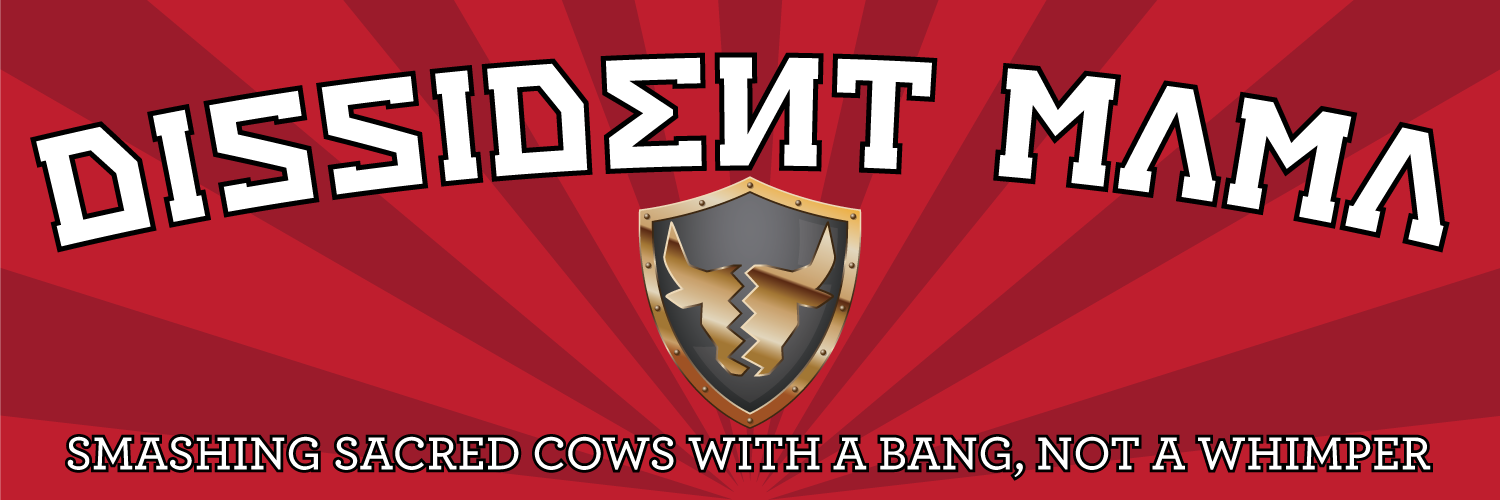
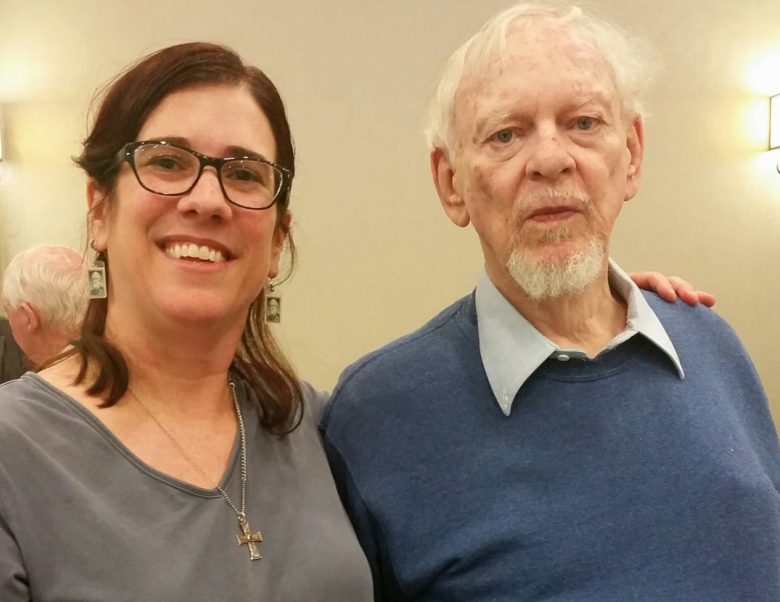

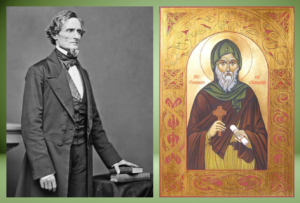
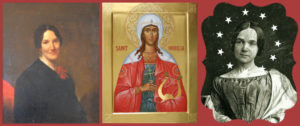
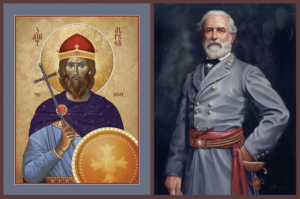
Comments
What a fabulous interview! I would kill to have had the opportunity to study under that man. I am sure I would have flunked out, but just having the opportunity to get into that man’s mind for just a little while would have made it worth it. Great job with the interview.
Thanks, William! I know – thinking about the great minds that are prevented from teaching in universities today and the true education denied, well, that is just a pathetic testament to the totalitarians’ MO. What a boring life these people must lead. Luckily, Dr. Wilson is STILL teaching and I pray that more people listen to his sage advice and learned perspective and deep historical knowledge.
I really enjoyed this Interview. Dr. Clyde always has something valuable to say.
Also Lochlian Seabrook recently released his screenplay based on his book A Rebel Born about Nathan Bedford Forrest. They tried to make it into a movie but the production company screwed it up and it came out terrible. Luckily they made the screen play into a book, it can be purchased at Sea Raven Press.
Collin, I’ve never heard of this book or Sea Raven Press. Man, do I love learning knew things from my readers … woo hoo!! I didn’t buy the movie (per your advice), but once I saw that Dr. Wilson wrote the foreword for the book, I couldn’t resist picking up the book. Looking forward to reading it. Thanks so much the suggestion!
I don’t have much to add to the commentary about this current installment or any of the others, except to say, “BRAVO!!!”
Thank you, DD!!
I would like to get in touch with Dr Wilson for his insight into what I believe to be a few good questions. How might I reach him?
And no, I am not a journalist and none of them are gotcha questions.